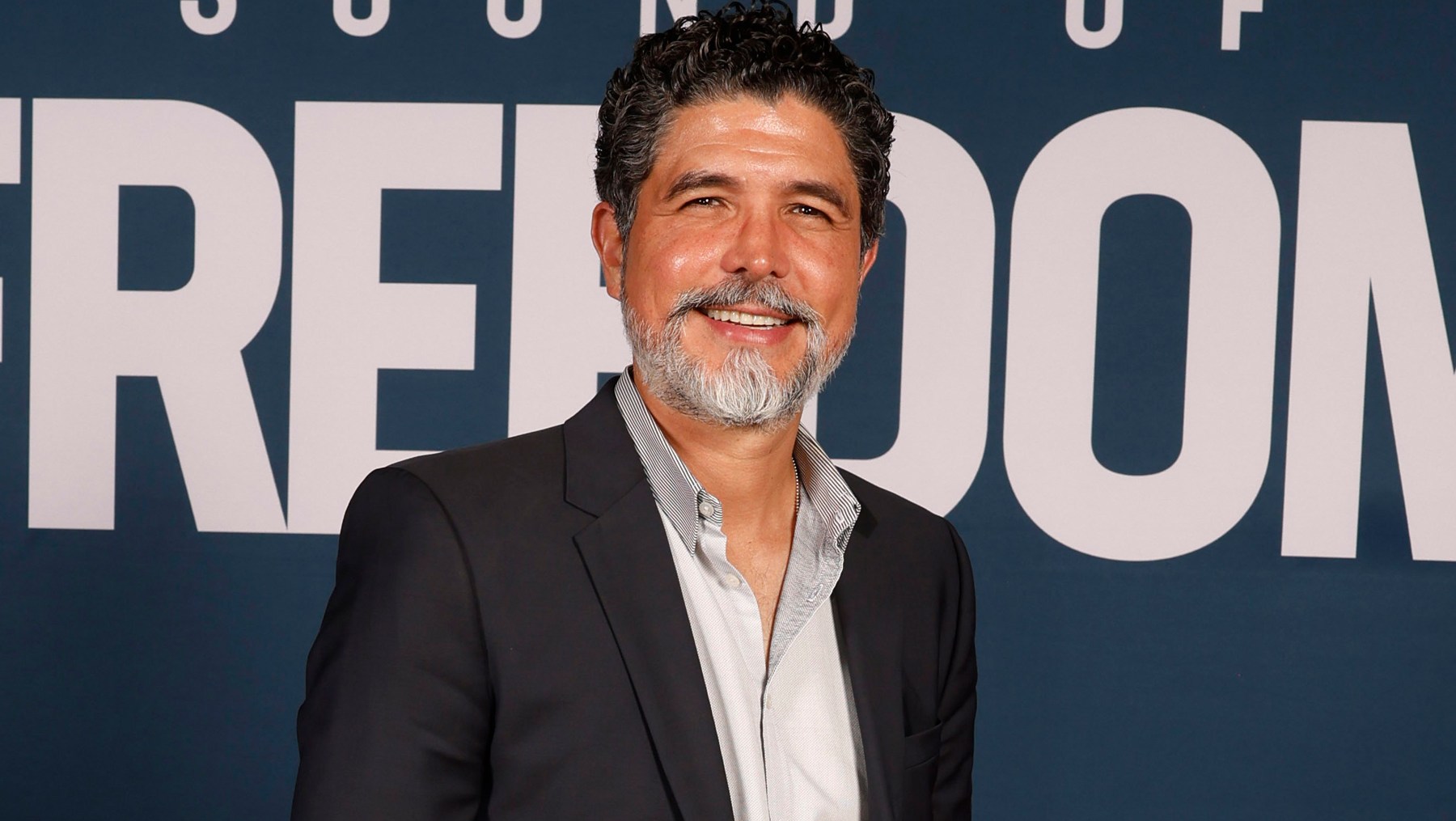‘Sound of Freedom’ Director Denies Promoting QAnon Movement

More than a month after his indie thriller Sound of Freedom premiered in theaters, setting off waves of hype, criticism, and conspiracy theories, director Alejandro Monteverde has weighed in on the film’s runaway success and defended its portrayal of child sex trafficking. Organizations leading the fight against human trafficking have blasted the drama as sensationalized, irresponsible take on the problem that does a disservice to victims. Meanwhile, it has energized right-wing culture warriors, especially of the QAnon variety, who have used the movie to continue pushing a moral panic over an imagined cabal of elites who prey on innocent youths.
In a new interview with the Los Angeles Times, Monteverde revealed that the low-budget movie’s box-office bonanza — more than $160 million to date — came as a “complete surprise” to him. “I thought this movie was never going to see the light of day,” he said. “So I ended up giving away my points. I’m not going to make $1.” (Neither Angel Studios, the production company that released the film, nor Monteverde immediately responded to Rolling Stone‘s request for comment.) In any case, he’s been heartened by audience support, saying viewers are moved to do what they can to combat the issue of human trafficking. “The more awareness you create, the better,” he argued, sidestepping questions of accuracy.
Monteverde acknowledged how the conspiracist far right has wholeheartedly embraced Sound of Freedom, which fictionalizes the exploits of controversial anti-trafficking activist Tim Ballard, saying, “all of this other stuff that happened is very weird for me.” Ballard, who founded the anti-trafficking nonprofit Operation Underground Railroad and is known for misrepresenting facts about the raids he has staged with the group abroad, in which he purports to have brought down various pedophiles and sex trafficking networks, was forced out of the organization before the long-delayed movie came out amid internal complaints against him. Ballard has yet to speak publicly on the circumstances of his departure or past reporting on false claims around his exploits with O.U.R., and he did not immediately respond to a request for comment.
Monteverde said he initially spoke to Ballard for research on a screenplay about child trafficking, but found himself compelled to reorient the plot to tell Ballard’s allegedly exaggerated life story, mythologizing him in the process. Sound of Freedom takes his fictional heroism even further, turning its protagonist into a moral crusader who defies governments and militant guerrillas in order to save kids.
The director started working on the film in 2015, and it was completed by 2018, before the mainstreaming of QAnon, an extremist pro-Trump movement characterized by unfounded claims that an underground Satanic society is systematically abducting, sexually abusing, and drinking the blood of children. The movie depicts none of this, but the film’s star, Jim Caviezel, has voiced such views while publicizing it, and QAnon communities have celebrated the story as a means to spread their message. Ballard himself also claimed in a recent interview that he had saved children being trafficked for organ-harvesting and “Satanic ritual abuse,” both QAnon tropes. Monteverde denied the movie had any connection to such dangerous propaganda. (Meanwhile, sex trafficking experts have told Rolling Stone that promoting false narratives about sex trafficking can potentially harm real victims.)
“It’s heartbreaking, and it hurts me,” Monteverde said of reactionary conspiracy theorists latching on to Sound of Freedom as a convenient tool for mass recruitment. “The minute they started labeling it with conspiracy theories, it discredits the purity of the work.” He protested that his film contains no references to QAnon or Pizzagate, a predecessor hoax which held that prominent Democrats ran a child sex trafficking ring out of a pizza restaurant in Washington, D.C. Of course, that doesn’t reduce its value to QAnon adherents, who view it as a potential gateway to their more radical ideas.
“When I started seeing that develop in front of me, my first instinct was to [distance] myself from it,” Monteverde said of Caviezel espousing QAnon beliefs on press tour. Nonetheless, he stood by his leading man, describing Caviezel as “very passionate about the subject matter” as he recalled the beginning of their collaborative relationship. “His conviction to want to shine a light on this was so deep that he got emotional,” he said. “The first time I met him, he was crying.”
Elsewhere, Monteverde deflected controversy over creative choices that distort the reality of human trafficking, and heavily embellishing the details of Ballard’s life. “It’s not a documentary,” he said. “I always wanted to stretch.” (Defenders of the film, however, have taken its claim to be “based on a true story” quite literally.) As for the politicized response, Monteverde said that sales prove Sound of Freedom is resonating across the ideological spectrum. But profits have been buoyed by a pay-it-forward promotion — zealous fans are purchasing tickets on the website of distributor Angel Studios that anyone can then claim for free — as well as churches and other groups buying up blocks of seats for members, with some going unused.
“If internationally, we come back with a big price tag, then you can’t deny that,” he noted, expressing optimism ahead of the movie’s global release. “I’m going to Colombia for the premiere, so I can’t wait to see what’s going to happen.”
This article has been archived for your research. The original version from Rolling Stone can be found here.


